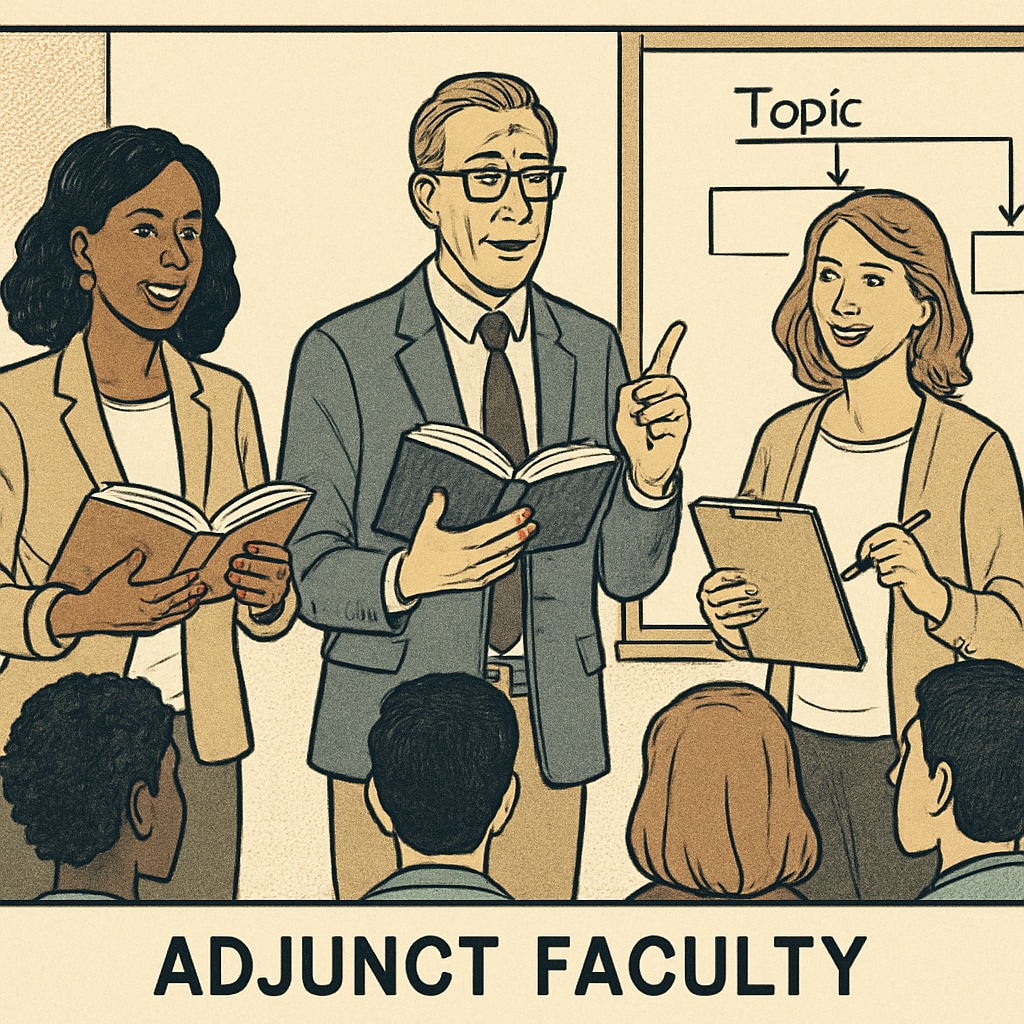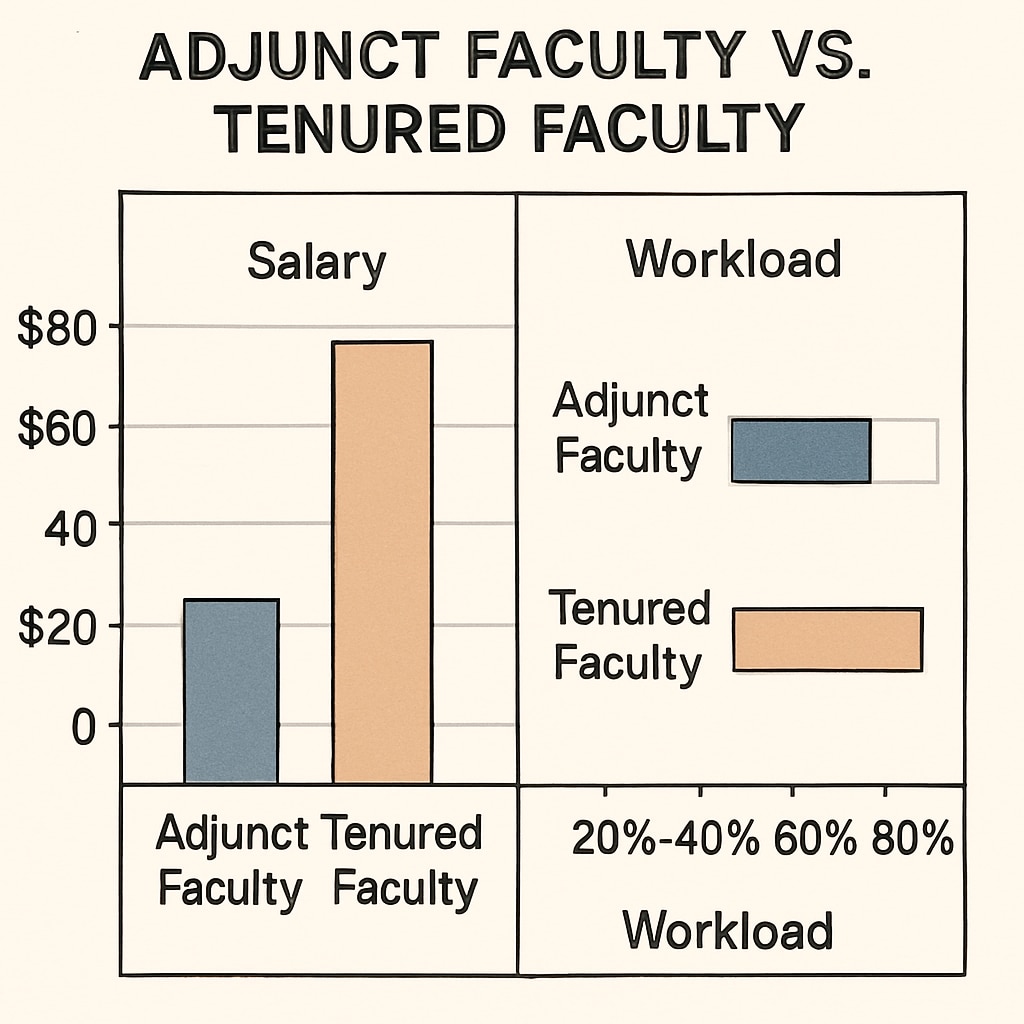In recent years, the increasing reliance on adjunct faculty in U.S. universities has revealed significant inequities in the academic system. Many institutions demand research outputs from adjunct professors, even though these faculty members are typically hired under teaching contracts that fail to compensate for research time. This practice, which can be described as a form of academic exploitation, often includes unrealistic research quotas that detract from their primary teaching responsibilities. As a result, both educational quality and the professional development of adjunct faculty face considerable challenges.
The Growing Role of Adjunct Faculty
Over the past few decades, adjunct faculty have become a cornerstone of higher education in the United States. These non-tenured instructors often teach a significant portion of undergraduate courses, allowing institutions to reduce costs. According to a 2020 report by the American Association of University Professors (AAUP), adjuncts now make up over 40% of instructional staff in U.S. colleges and universities.
However, while adjuncts are primarily hired to teach, many universities, particularly those seeking or maintaining AACSB (Association to Advance Collegiate Schools of Business) accreditation, impose stringent research requirements on these faculty members. Such expectations are rarely reflected in their contracts, which typically do not provide compensation or time allocation for research activities.

Unrealistic Research Quotas and Their Consequences
One of the most pressing issues adjunct faculty face is the imposition of research quotas. These quotas often require adjuncts to publish in high-impact academic journals, a task that demands significant time, resources, and access to institutional support. However, adjuncts are frequently excluded from research funding opportunities, mentoring programs, and other institutional resources available to tenured faculty.
The consequences of these unrealistic demands are multifaceted:
- Decreased Teaching Quality: As adjuncts struggle to meet research expectations, their ability to focus on teaching responsibilities diminishes, potentially lowering the quality of education students receive.
- Burnout and Job Dissatisfaction: The dual pressure of teaching and research without adequate support leads to high levels of stress and dissatisfaction among adjunct faculty.
- Limited Career Progression: Adjuncts often face challenges in advancing their academic careers due to the lack of institutional recognition for their research efforts.
For example, a study by the Chronicle of Higher Education found that adjuncts who attempt to balance teaching and research often work over 60 hours per week, with little to no increase in pay or job security.

Addressing Academic Exploitation
To mitigate the impact of academic exploitation on adjunct faculty, universities must reevaluate their approach to faculty contracts and academic expectations. Several strategies can help address this systemic issue:
- Fair Compensation: Universities should provide additional pay or allocate specific research hours for adjuncts who are required to meet research quotas.
- Access to Resources: Adjunct faculty should have the same access to research funding, libraries, and professional development programs as their tenured counterparts.
- Transparent Contracts: Institutions must ensure that teaching contracts clearly define expectations and include fair provisions for additional tasks, such as research and service.
- Advocacy for Policy Changes: Faculty unions and academic organizations should advocate for regulations that protect adjuncts from exploitative practices.
By implementing these changes, universities can create a more equitable academic environment that prioritizes both education quality and faculty well-being.
Conclusion
The issue of academic exploitation in the context of adjunct faculty highlights a critical flaw in the structure of U.S. higher education. The mismatch between teaching contracts and research expectations not only places undue stress on adjuncts but also undermines the overall mission of universities to provide high-quality education. Addressing these inequities requires a concerted effort from institutions, academic bodies, and policymakers to create a system that values and supports all faculty members, regardless of their employment status.
As a result, prioritizing fair treatment for adjunct faculty is not just a matter of ethics—it is essential for the sustainability of higher education as a whole.


